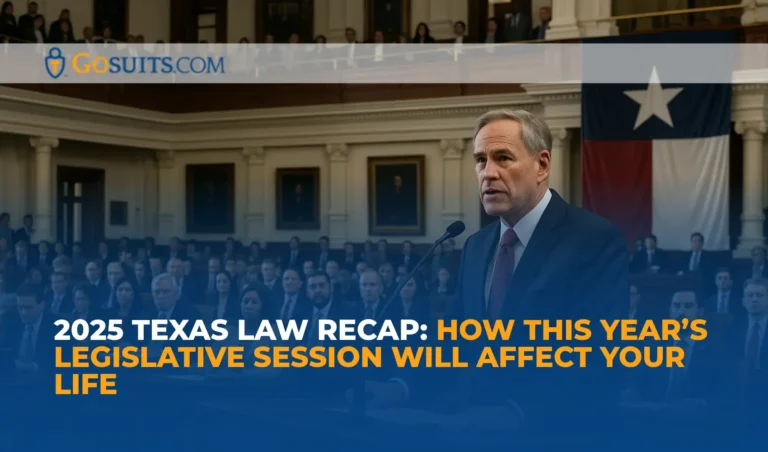The 2025 regular session of the Texas Legislature concluded with a flurry of activity and a remarkable number of policy shifts that will impact virtually every household, school, and local agency across the state. Over the course of 140 days, 150 state representatives and 31 senators passed more than 1,200 bills during the 89th Texas Legislature. From education and immigration to abortion access and the fate of the state lottery, lawmakers checked off a broad agenda, signaling a transformative year for state governance.
Below is a detailed breakdown of the most notable legislative actions and what they could mean for families, workers, and local communities throughout Texas.
The Texas Lottery: Commission Abolished, Game Preserved
One of the most unusual moves this session was the Legislature’s decision to preserve the Texas Lottery while simultaneously dismantling the commission that oversees it. A bill approved by lawmakers transfers the oversight responsibilities to the Texas Department of Licensing and Regulation (TDLR), effectively dissolving the Lottery Commission.
In addition to the lottery itself, TDLR will also take control of Charitable Bingo, which had previously been under the now-defunct commission. This restructuring comes amid ongoing scrutiny of the state’s lottery operations and is expected to streamline oversight under a broader regulatory body.
Education Overhaul: Vouchers, Teacher Pay, and a Record Budget
Perhaps no area saw more dramatic shifts than education. After tense negotiations, the Legislature passed a sweeping “school choice” bill that allows public funds to be used for private school tuition. The bill authorizes the creation of education savings accounts (ESAs), representing a significant expansion of taxpayer support for non-public education.
To ease concerns about diverting funds from public schools, Republican leaders paired the voucher bill with a massive $8.5 billion school funding package—the largest education spending bill in state history. In a legislative maneuver dubbed the “Texas two-step,” the dual-track approach was designed to offset criticism that the voucher program would defund traditional public schools.
The legislation also includes pay raises for teachers, with increases tied to years of experience. Supporters say the measures are intended to provide families more educational options while strengthening public school systems. Critics, however, warn of lasting impacts on public school budgets and oversight.
Immigration Enforcement: Jail Agreements with ICE Required
A landmark immigration-related bill passed this session imposes new obligations on county jails throughout Texas. Every sheriff’s office operating a jail must now enter into formal agreements with U.S. Immigration and Customs Enforcement (ICE). These agreements, also known as 287(g) partnerships, deputize local officers to perform limited immigration enforcement functions—after completing specialized federal training.
The law is likely to deepen the role of local law enforcement in immigration proceedings, particularly in areas with high rates of detention and deportation. Supporters argue this approach bolsters border security and community safety, while critics contend it risks blurring the lines between local policing and federal immigration enforcement.

LGBTQ+ Policies: Restrictions on Identity and School Clubs
The Legislature also passed several controversial measures affecting LGBTQ+ individuals and their families. A pair of bills now requires state agencies and health systems to define individuals in official records based on biological sex assigned at birth, rather than gender identity.
Another measure passed by lawmakers aims to shield parents who do not affirm their child’s gender identity or sexual orientation from legal repercussions under Texas’ definitions of child abuse or neglect. Specifically, the law provides protections for parents who “misgender” or “deadname” their children, stating that such actions cannot be used as grounds for abuse allegations.
In the field of public education, lawmakers sent a bill to Governor Greg Abbott that would outlaw LGBTQ+ student clubs in Texas public schools. Critics call the move an infringement on students’ rights to free association and expression, while supporters frame it as a parental rights and curriculum transparency issue.
Abortion Policy: Narrow Exception and Funding Restrictions
Two abortion-related measures passed this session offer a clearer picture of Texas’s evolving stance in a post-Roe v. Wade legal landscape.
First, legislators approved an exception allowing physicians to perform abortions when a mother’s life is in danger, clarifying a previously vague area of law that had created uncertainty for both doctors and patients. The change responds to rising concerns from the medical community over potential legal exposure in emergency cases.
Second, the Legislature passed a bill prohibiting any government agency or public entity from using taxpayer funds to provide logistical support, such as travel or lodging, for abortion access groups. This measure effectively blocks local governments from indirectly facilitating abortion-related services, regardless of whether the procedure itself occurs in another state.

What This Means Going Forward
The 2025 legislative session reflects a significant consolidation of conservative policy objectives across a broad spectrum of state law. While the session lacked the high-profile political drama of previous years, the changes passed are far from minor.
From public education to immigration and civil liberties, these new laws will require close monitoring—not only for how they are implemented but also for the legal challenges they may invite. For families, business owners, and everyday Texans, the practical effects are only just beginning to surface.
At Gosuits, we understand that behind every law is a real person with real questions. We monitor new legislation closely and offer guidance tailored to your specific circumstances. This is a moment of significant legal change in Texas.






